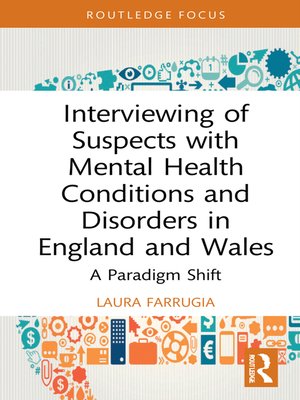Interviewing of Suspects with Mental Health Conditions and Disorders in England and Wales
ebook ∣ A Paradigm Shift · Routledge Frontiers of Criminal Justice
By Laura Farrugia

Sign up to save your library
With an OverDrive account, you can save your favorite libraries for at-a-glance information about availability. Find out more about OverDrive accounts.
Find this title in Libby, the library reading app by OverDrive.



Search for a digital library with this title
Title found at these libraries:
| Library Name | Distance |
|---|---|
| Loading... |
Interviewing of Suspects with Mental Health Conditions and Disorders in England and Wales explores cutting-edge research that focuses specifically on these adults (including their cognitive needs and psychological vulnerabilities), the impact on the investigative interview, and existing legislation, guidance and practice.
The book opens with a historical overview of the move from interrogation to investigative interviewing, including the impact of well-known miscarriages of justice and the inquiry that led to the development of current best practice interviewing. Further chapters focus on the concept of vulnerability within current theoretical frameworks, with a particular emphasis on mental health conditions and disorders, including how they are constructed, understood, and identified within legislation and by those working at the forefront of the criminal justice system. The book also examines current safeguards available to the suspect with mental health conditions and disorders, such as the Appropriate Adult; contemporary research explores their involvement with vulnerable suspects and whether it is sufficient, as well as how the Appropriate Adult understands and experiences their role. Final chapters scrutinise current best practice investigative interviewing of suspects with mental health conditions and disorders, and a paradigm shift towards an emerging evidence-based interview model that considers the vulnerabilities associated with suspects with mental health conditions and disorders in the investigative interview.
Examining current psychological theory, contemporary research and existing legislation and guidance including authorised professional practice, this book will be of interest to those working within the criminal justice system, as well as policing and forensic psychology students. In particular, it is essential reading for all serving and trainee police officers, those delivering investigative interviewing training, and interviewing personnel, such as Appropriate Adults.







